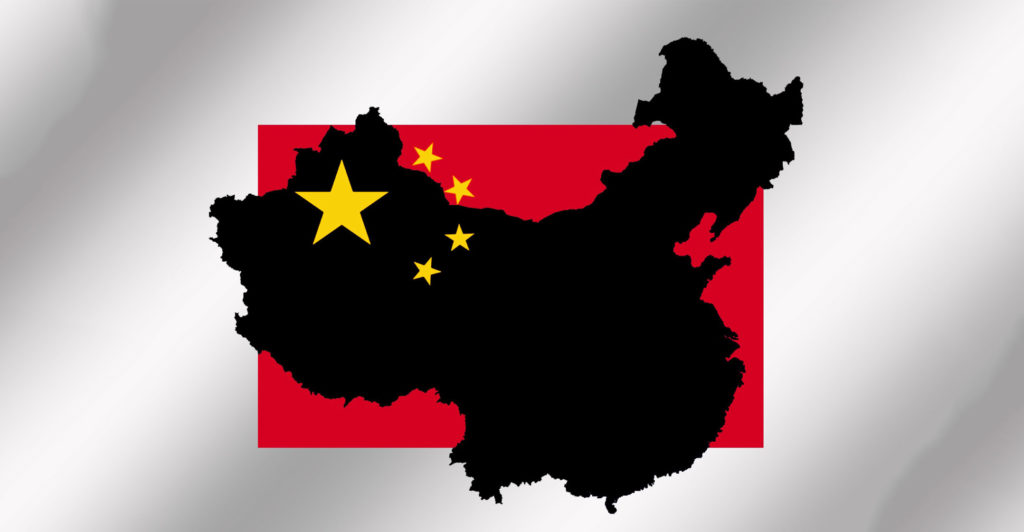
China plans to expand a ban on the use of iPhones in sensitive departments to government-backed agencies and state companies, a sign of growing challenges for Apple in its biggest foreign market and global production base.
Several agencies have begun instructing staff not to bring their iPhones to work, people familiar with the matter said, affirming a previous report from the Wall Street Journal. In addition, Beijing intends to extend that restriction far more broadly to a plethora of state-owned enterprises and other government-controlled organisations, the people said, asking not to be identified discussing a sensitive matter.
If Beijing goes ahead, the unprecedented blockade will be the culmination of a years-long effort to root out foreign technology use in sensitive environments, coinciding with Beijing’s effort to reduce its reliance on American software and circuitry. It threatens to erode Apple’s position in a market that yields about a fifth of its revenue, and from where it makes the majority of the world’s iPhones through sprawling factories that employ millions of Chinese.
It’s unclear how many companies or agencies could eventually adopt restrictions on personal devices, and there’s been no formal or written injunction as yet, the people said. State firms or organisations will likely vary in how strictly they enforce such bans, with some forbidding Apple devices from the workplace while others could bar employees from using them entirely.
Chinese state firms like oil giant PetroChina employ millions and control vast areas of a centrally planned economy. Given Apple’s relationship with Beijing and its importance to the economy, it “has historically been viewed as relatively safe in China from government restrictions”, KeyBanc Capital Markets analyst Brandon Nispel said in a report on Wednesday. “Is the government changing its stance?”
A representative for Cupertino, California-based Apple didn’t respond to a request for comment. The State-Owned Assets Supervision and Administration Commission and the State Council Information Office didn’t respond to faxed requests for comment.
Apple falls
The prospect of China souring on Apple jarred investors on Wednesday. The shares slid 3.6% in New York, their biggest single-day drop since 4 August. Apple had gained 46% this year before the decline, part of a broader run-up in tech stocks.
The company enjoys widespread popularity in China, despite rising resentment of American efforts to contain the Asian country’s technology industry. Apple’s iPhones are among the nation’s bestsellers and are common in both the government and private sector.
But the blockade on the devices coincides with stepped-up efforts to develop domestic technology that can match or even surpass American innovation. Last week, the release of a Huawei Technologies smartphone that contained an advanced made-in-China processor caused a stir on both sides of the Pacific. State media celebrated an early triumph against harsh US sanctions, while one US lawmaker called for an investigation into possible violations of those curbs.
Read: China’s preparing $40-billion state fund to boost chip industry
Foreign devices have long been discouraged in sensitive agencies, particularly as Beijing stepped up a campaign in recent years to reduce a reliance on technology from the US, China’s geopolitical rival.
Employees at “some” central government regulators received instructions via chat groups and in meetings to stop bringing such gadgets into the office, the Journal reported earlier, citing people familiar with the matter. It’s not clear how widely the orders were issued, it said.
 In 2022, Beijing ordered central government agencies and state-backed corporations to replace foreign-branded PCs with domestic alternatives within two years, marking one of the most aggressive efforts to eradicate key overseas technology from within its most sensitive organs.
In 2022, Beijing ordered central government agencies and state-backed corporations to replace foreign-branded PCs with domestic alternatives within two years, marking one of the most aggressive efforts to eradicate key overseas technology from within its most sensitive organs.
The US administration, meanwhile, has sought to limit exports of cutting-edge semiconductor equipment to China. And China’s top chip maker, Semiconductor Manufacturing International, has come under scrutiny for supplying components to Huawei — a company the US has blacklisted.
Even with US-China ties fraying, Apple remains highly dependent on the Asian country — both as a manufacturing partner and a market for its products. CEO Tim Cook celebrated that relationship during a trip to China earlier this year, calling it “symbiotic”.
Read: China bans civil servants from using iPhones: report
China also was one of the highlights of Apple’s results last quarter, helping offset a generally sluggish period. The company is preparing to unveil its latest iPhones next week, setting the stage for a holiday quarter that is invariably its biggest sales period of the year. — Jenny Leonard and Debby Wu, with Mark Gurman, Jing Zhao and Jessica Sui, (c) 2023 Bloomberg LP

